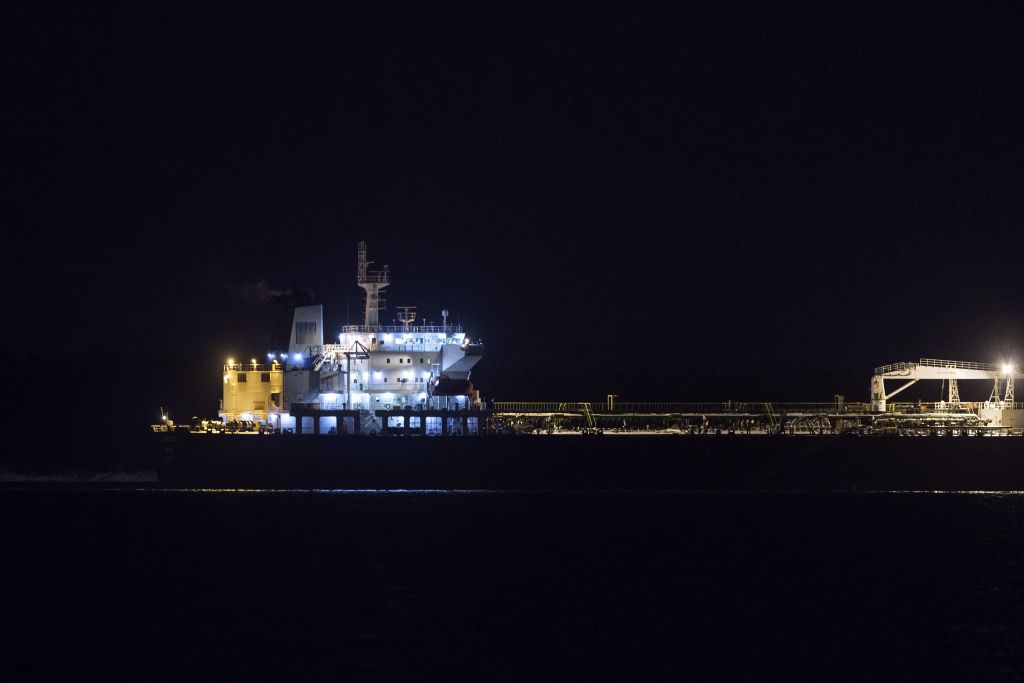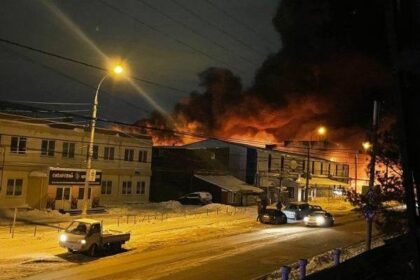**Finland Charges Crew of Baltic Tanker with Ties to Russia Over Undersea Cable Damage**
In a move aimed at holding shadow fleet operators accountable for their actions, Finland has filed criminal charges against the top officers of a Baltic oil tanker over severe damage to undersea cables in December 2024. The incident is one of several energy and telecommunications disruptions in the region that European officials have linked to suspected sabotage.
The National Prosecution Authority in Helsinki has indicted the captain and two first officers of the Eagle S, a Cook Islands-registered tanker believed to be part of a “shadow fleet” transporting Russian oil in violation of international sanctions. Prosecutors accuse the three officers of aggravated criminal mischief for allegedly dragging the ship’s anchor more than 90 kilometers across the Gulf of Finland on Dec. 25, severing five electricity and telecom cables and causing nearly $70 million in damages.
“This incident highlights the serious risks associated with such acts of sabotage,” said Pekka Toveri, a former head of Finland’s military intelligence and now a member of the European Parliament. “Imposing severe penalties is key to deterring anyone from taking part in such acts.” Toveri added that he still suspects Russia’s involvement in the incident.
The mariners, reportedly Georgian and Indian nationals, were not named. While Finland has not directly accused Russia of involvement, officials noted that the Eagle S had just departed from a Russian port carrying oil products. Finnish President Alexander Stubb said weeks after the incident that it was “definitely” linked to Russia, and officials suspected from the outset that it bore “Kremlin fingerprints.”
The damage caused by the Eagle S is part of a broader pattern of suspected Russian operations across Europe. Other incidents include an alleged assassination plot targeting a German arms executive and arson attacks in Poland, Lithuania, England, and other countries.
**European Officials Suspect Coordinated Sabotage**
Some European officials believe that such incidents may be part of a coordinated Russian sabotage campaign aimed at disrupting energy and telecommunications infrastructure in the region. However, Western intelligence agencies have cautioned that many of these cases may have been accidental, caused by poorly maintained ships and inadequately trained crews.
The Finnish authorities’ decision to pursue the case without formally attributing the damage to Moscow is seen as a way to hold shadow fleet operators accountable for their actions. The incident highlights the need for increased security measures to protect undersea infrastructure from potential sabotage.
**Consequences of Sabotage**
The consequences of such acts can be severe, as seen in this case where nearly $70 million in damages were caused by the severing of five electricity and telecom cables. As Toveri noted, imposing severe penalties is key to deterring anyone from taking part in such acts of sabotage.
As the world continues to grapple with the consequences of Russian aggression, incidents like these serve as a reminder of the need for increased vigilance and cooperation among European countries to protect their energy and telecommunications infrastructure from potential threats.












